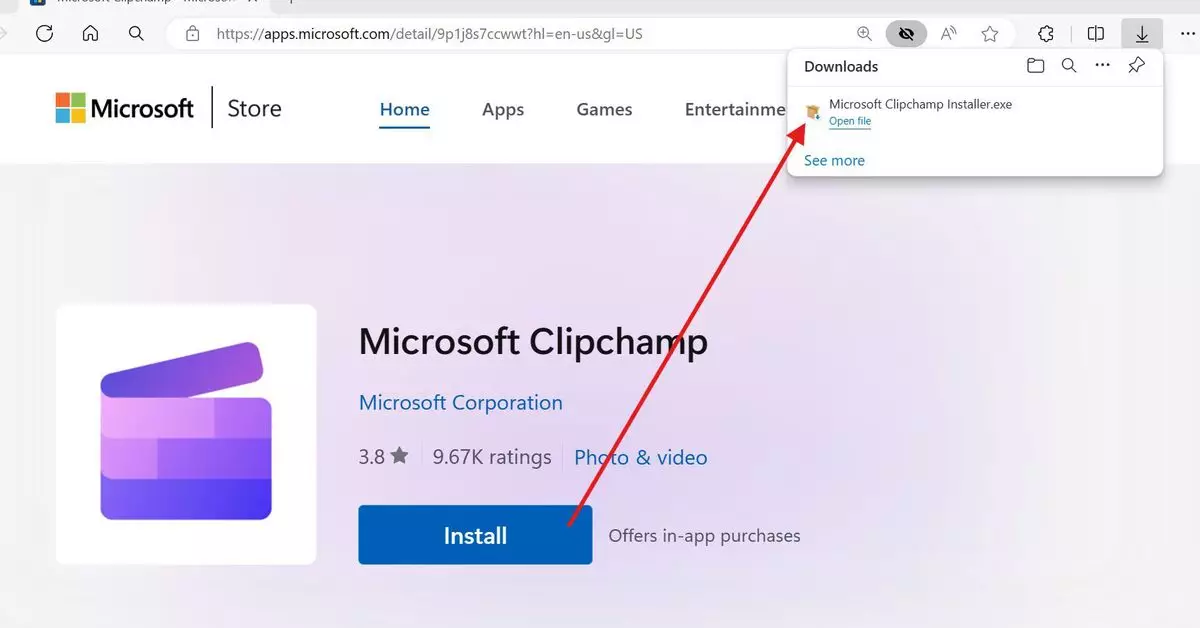Microsoft is taking steps to enhance the process of downloading Windows store apps from the web. They have introduced an “undocked version of the Microsoft Store” which functions like a typical executable to facilitate the installation of apps from the Microsoft Store. This new approach aims to simplify the complexity associated with discovering Windows store apps online and installing them.
Instead of the conventional method where users had to launch the Microsoft Store and a mini window, the new approach involves downloading a standalone installer directly from the web version of the Microsoft Store. This eliminates the need to click install on the web, then allow the browser to open the Microsoft Store, and finally hit install to complete the installation process. With the lightweight installer, users can now easily launch and install the desired Microsoft Store app.
While Microsoft Store developer Rudy Huyn claims that this new process reduces the entire installation to just two clicks, practical testing has shown that it actually involves three clicks. Users need to click to download, then click to open the new lightweight installer, and finally, click install in the prompt that appears. Although the prompt to approve the Microsoft Store being opened through the browser has been eliminated, not all Microsoft Store apps support this new lightweight installer.
Despite the positive impact reported by Microsoft, there are still challenges with the transition to standalone installers. Some apps like Discord continue to redirect users to the Microsoft Store instead of utilizing the standalone installer. Additionally, the standalone installers do not include the full app installer, which is downloaded during the installation process. This poses a limitation to the streamlined experience that Microsoft is aiming to achieve.
Microsoft has conducted extensive testing over the past five months and observed an increase in installations and app usage following the adoption of the new lightweight installer approach. As a result, they are planning to expand this experiment to include “more products and markets.” This initiative is particularly beneficial for developers seeking to attract Windows users to install and engage with their apps, signaling a positive direction for the Microsoft Store ecosystem.


Leave a Reply